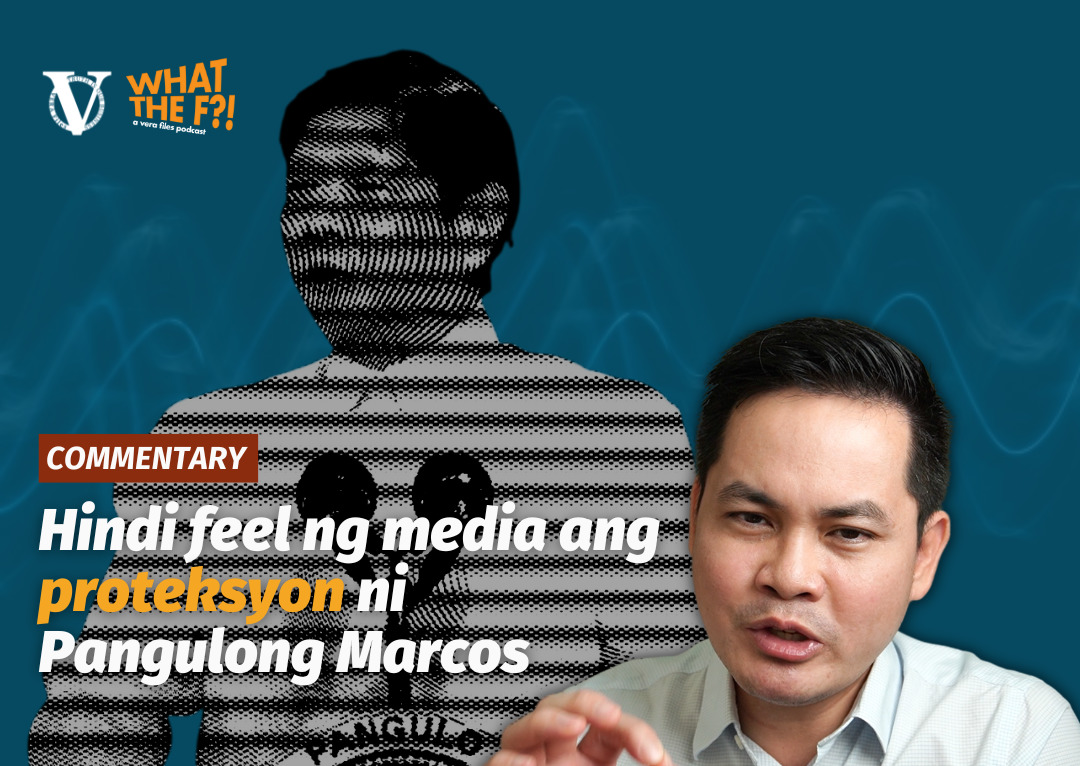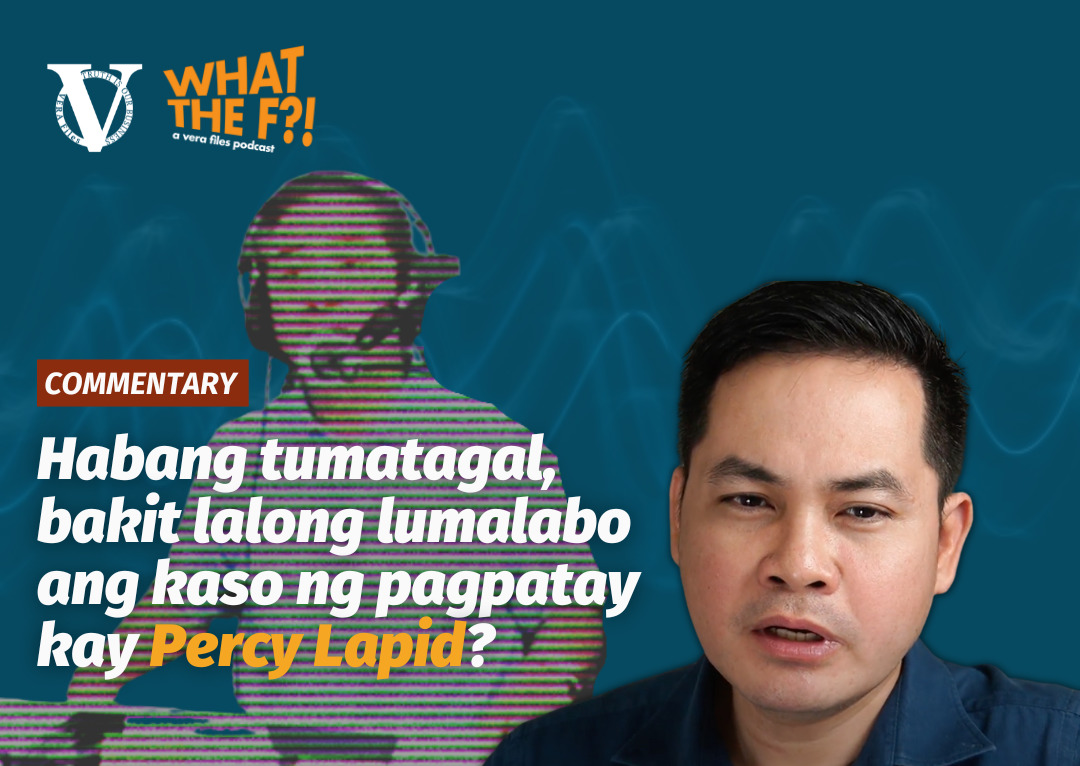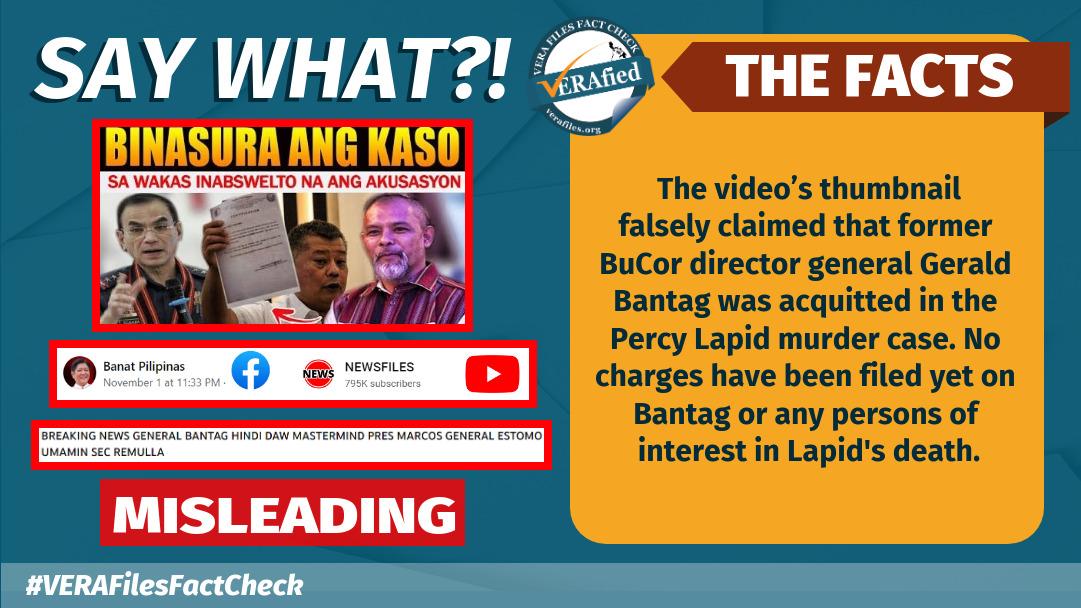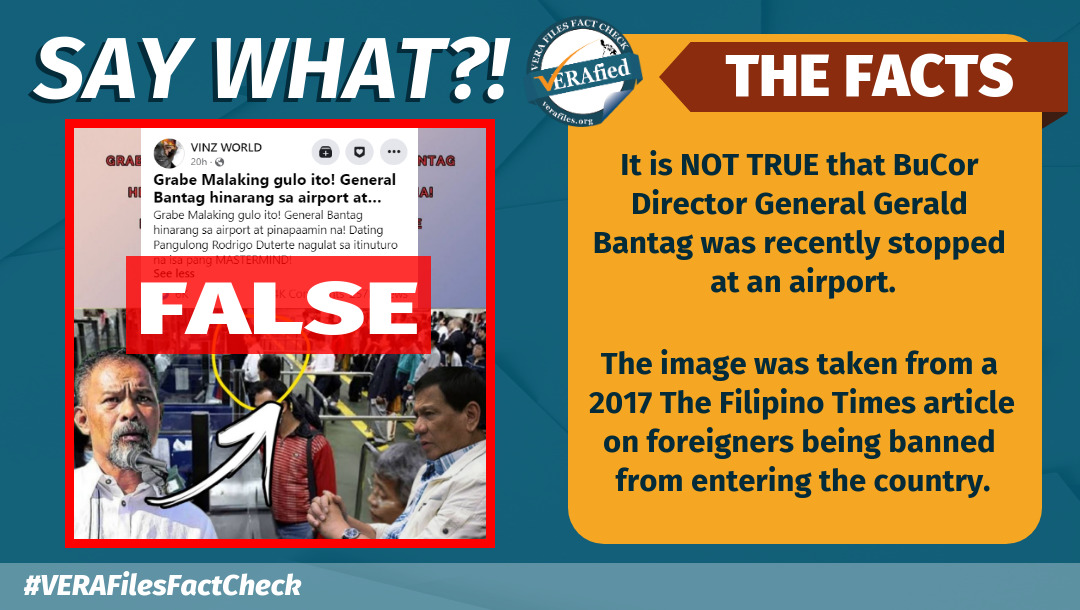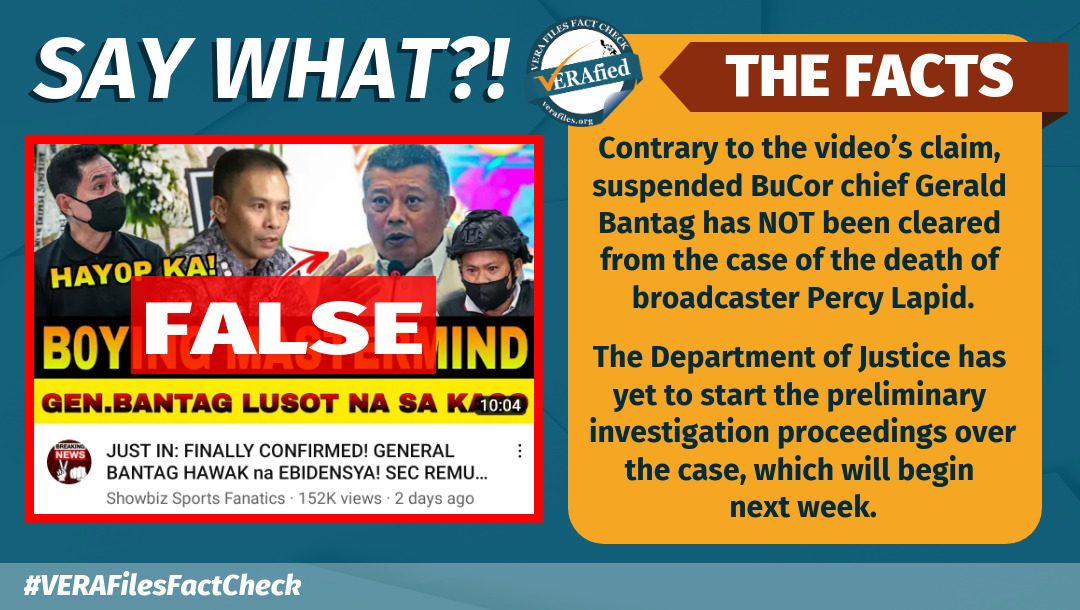That line was a never-ending refrain, nay a motif even, of all his hard-hitting commentaries on radio and on his vlogs.
I never knew Percy Lapid from Adam. Blame it on my elitist background – the radio was not a source of news for me. It was only when I had met him for the first time that he explained to me why he had persevered in his critical activism all the decades that he had been a journalist. He told me the reason for his commentaries delivered in sharp-witted Tagalog was because he wants to project a “media that must always appeal to the yearnings of the masa.” The masa, he said, are the ones hit most by bad governance, government corruption, and abuse of political power.
Percy Lapid speaks of Philippine journalism from his veteran perspective. Back in the days when there were no federations to uphold journalists’ rights, there was only the National Press Club. That was where he was active as a member, until, he relates, the association became mired in corruption issues. “Many members went each of their ways in having political sponsorships,” he said. Media as an independent entity died.
He endured as a radio reporter. He recalls the days when President Fidel V. Ramos would apportion plane seats to journalists to cover the presidential state visits abroad. “That was how I met Ellen Tordesillas,” he said when I told him I was writing for Vera Files now. “FVR never took it personally when those of us in media continued to criticize his administration for its shortcomings,” he related.
At the height of the electoral campaign in the last elections, a friend recommended listening to his radio program “Lapid Fire.” I was stunned. The man I saw and heard was a fearless critic of corruption and abuse of power by politicians and officials of government. The tone was unmistakably one of bravado. And this was already the era of Dutertismo when many media organizations were cowering in fear, capitulating even, to the bullying threats of Rodrigo Duterte.
It was then that I understood why he named his radio program Lapid Fire. He would deliver his commentaries in rapid-fire fashion, yet without ever sounding arrogant or self-referential. Nor was he devoid of data. You could tell that he would research his facts, in true opinion journalism ethics.
The more one gets stunned when you see the intensity of his following – he had more than 220,000 subscribers. Catching up on current technology, he had his radio commentaries in DWBL recorded on video and shown on YouTube and on Facebook Live. He had also become a vlogger. Depending on his menu of current issues, the views to his vlogs would generate a high of 35,000 to more than 50,000 views. I am making a non-statistical approximation, considering that Lapid Fire has produced more than 8,000 videos to date.
That number of subscribers is staggering. It puts to shame vloggers who masquerade as opinion makers but actually thrive as propagandists, and whose following merely qualify as sand castles in the air – trolls instead of thinking warm bodies capable of building true critical citizenship.
His knowledge of Manila’s broadcast journalists was masterful. He knew all the dirty linens because he had seen them. When I asked him about a group of famous brothers who do the guise of public service (they have either been elected to high office or appointed as cabinet members), he said in his streetwise lingo, “They are hold-uppers.” And he told me the lurid tales of these brothers’ “envelopmental” journalism.
In the age of digital communications, his masa following had also extended to the Filipino diaspora abroad. Many of these Filipinos were avid listeners of his back home. That was a big factor in voters’ education for Overseas Filipino Workers for the last presidential elections. One group in Europe whom he had not even met gifted him with a vacation to Italy and Spain. But it was a working visit for him. In each city they had brought him, Filipinos dumbfounded by the results of the May 9 elections would gather and listen to him give his views on overcoming the grim trajectory of Philippine politics. I could sense his hesitancy to sound like a guru, but he simply spoke as he did in Lapid Fire – research-based actualities that taught the importance of facts over fake news.
That he died in the hands of gunmen riding tandem is undoubtedly characteristic of the extrajudicial killing havoc that Rodrigo Duterte had unleashed on Filipino society. In the playbook of Percy Lapid, corrupt and abusive politicians belong to jail. We may have lost one of the bravest Filipino journalists ever, his assassin’s bullets silencing him forever. But because freedom is paid for in blood, his murder is a big blight to the Marcos-Duterte administration, and a haunting reminder to all those in power that someday they will render an accounting for their greed.
One of his last commentaries was the red-tagging spree by Lorraine Badoy-Partosa. Red tagging, he said, emasculates the critics of government corruption. “Because the person has been labeled a communist, it actually discourages people from defending the red-tagged.”
The Philippines will someday transcend its morass of bad governance, dirty dynastic politics and corruption because of the activism of fearless journalists like Percy Lapid – and the empowered and emboldened people who follow his commentaries.
Mabuhay ka, Ka Percy Lapid!
The views in this column are those of the author and do not necessarily reflect the views of VERA Files.

